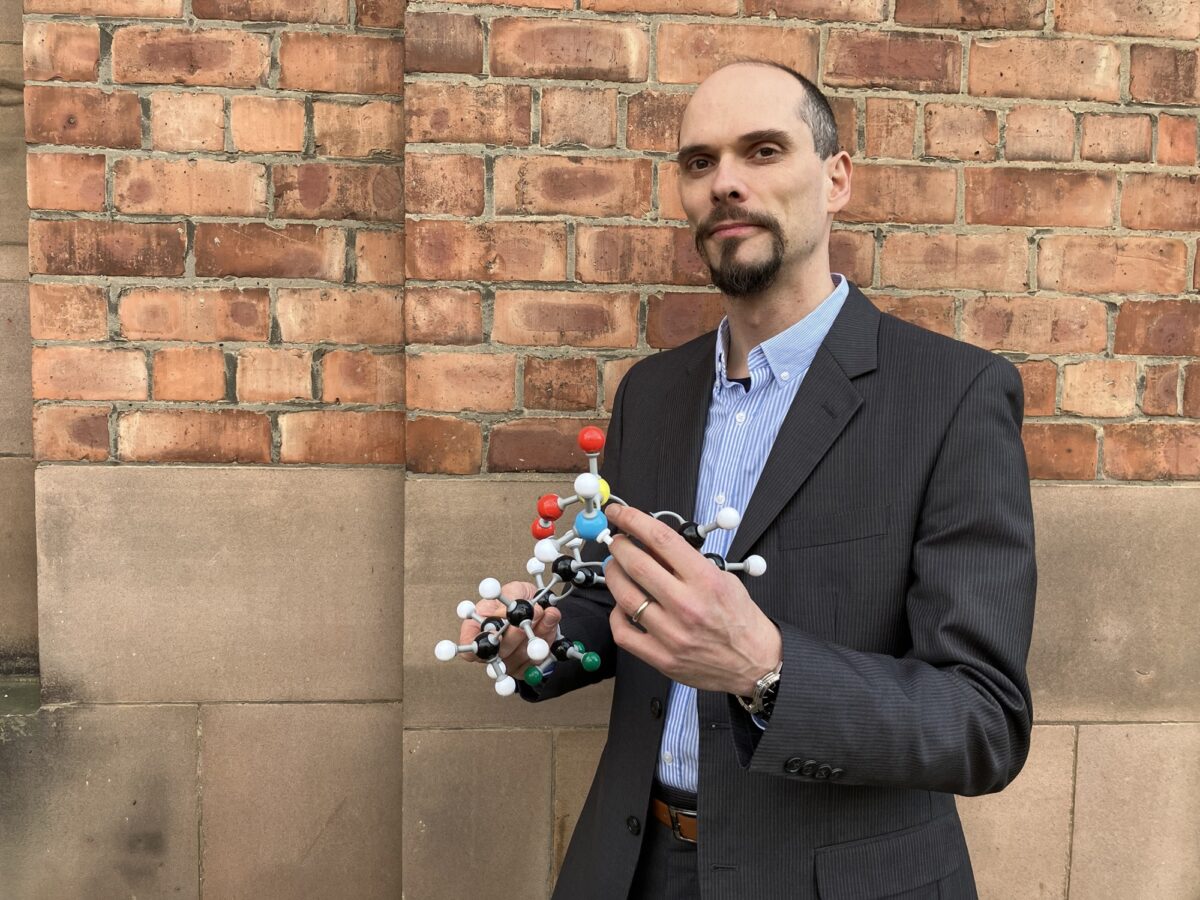
A group of university research scientists has formed a company to adapt open-source academic chemical software for use in the pharmaceutical industry.
Spinout OpenBioSim, from the University of Edinburgh, is working with pharmaceutical companies to tailor its software, developed for research, for drug discovery.
Open-source software (OSS), where the source code is available for anyone to use, modify, and distribute, is becoming increasingly common in academia but, because it is difficult to commercialise, is less used in industry.
Open-source innovation
However, Professor Julien Michel (pictured above), Personal Chair of Biomolecular Simulation at the University of Edinburgh’s School of Chemistry, says there are big advantages in OSS for industry.
Professor Michel said:
I’m a firm believer in making research software open-source. Not only does it advance research, it also enables innovation, because the software is accessible to a community of expert users and developers who can identify flaws and make improvements."
For industry, it means lower development costs, because instead of starting from scratch, companies can use existing OSS tools as a foundation for their proprietary technologies. This can save on development time and resources, allowing companies to bring their products to market faster and at a lower cost."
OpenBioSim’s employee, Lester Hedges, originally developed the open-source software BioSimSpace to integrate academic research software into a single library through an EPSRC grant at the University of Edinburgh five years ago. He is now working with AI-driven drug discovery company Exscientia, to adapt BioSimSpace for use in industrial drug discovery programmes.
Working with industry
Ben Cossins, Director of Molecular Dynamics at Exscientia, said:
We are excited to work with OpenBioSim. Integration of OSS that implements cutting edge chemical simulation algorithms with our proprietary AI technology has the potential to accelerate our drug discovery efforts even further. ”
OpenBioSim is also working with software company Cresset to build and maintain OSS that integrates with Cresset’s commercial products. Cresset licenses software for drug discovery research to organisations including biotech and pharmaceutical companies.
Dr Mark Mackey, Chief Scientific Officer at Cresset, said:
We are delighted to partner with OpenBioSim to support the maintenance and development of state-of-the art research software in chemical simulation. "
Not-for-profit commercialisation
Professor Michel worked with the University of Edinburgh’s commercialisation service, Edinburgh Innovations, to create OpenBioSim and constitute it as a Community Interest Company, which means it is run as a not-for-profit that answers to a community of members.
Professor Michel said:
We’re a group of scientists who use software for research, primarily for studying the interactions of biological molecules. What we do as a CIC must benefit our community, so our focus is to develop and maintain open-source research software, and keep it publicly available.
“Providing long-term support for OSS projects can also accelerate academic research. OSS projects that are well-maintained and supported are more likely to be used by researchers, which can lead to more studies and publications. This can, in turn, lead to new discoveries and advancements in computer-aided drug design.”
He explained that forming a company has lowered barriers for adoption of academic OSS by industry.
"It’s difficult to commercialise OSS, because you can’t sell a licence. For academic research purposes, you can apply for funding to build proof of concept software, but it is more difficult to secure funding to document, maintain or update research software that has demonstrated its value.
We’ve had companies come along wanting to use one of our research software, but the academic who developed it had moved on, and we couldn’t offer robust technical support. So OpenBioSim allows us to hire staff for the purpose of building on top of existing OSS and providing long-term support.
Forming a virtual and remote company has given us flexibility in hiring practices and to respond to industry needs in an agile way. "
University of Edinburgh School of Chemistry